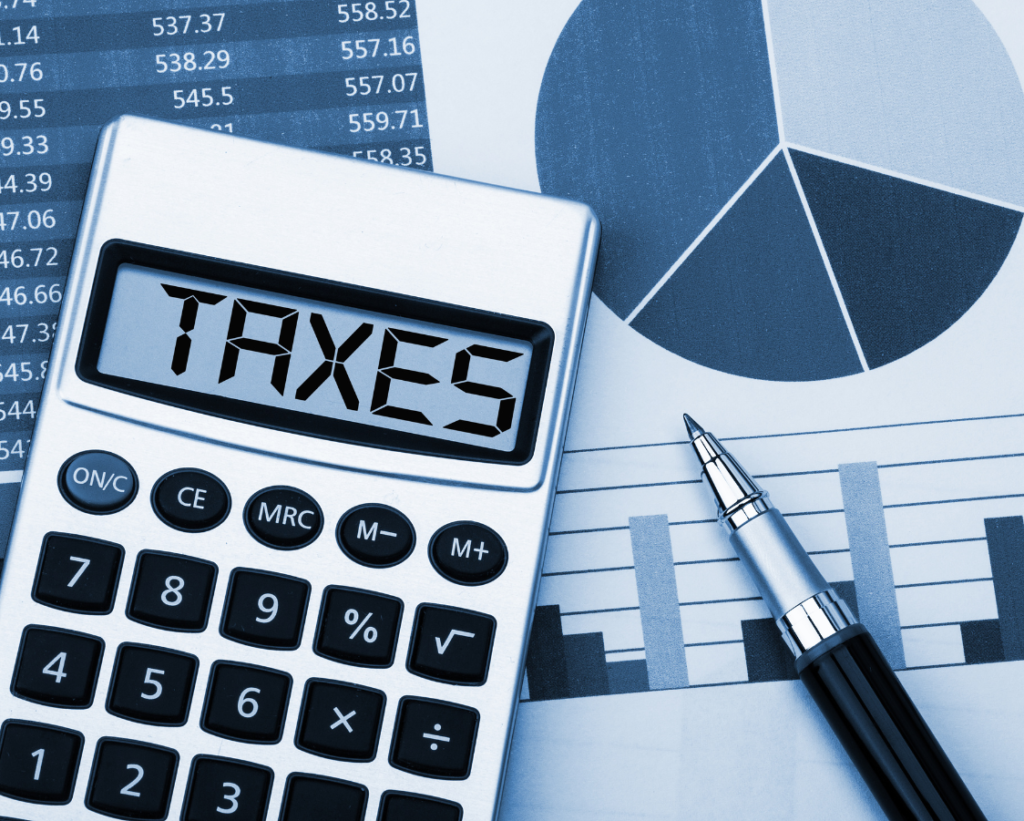
Introduction
In the dynamic finance realm, tax regulations constantly evolve, reflecting the ever-changing economic landscape. Advanced tax, a focal point in recent years, demands closer scrutiny as we gaze into the future. Exploring the imminent trends and predictions is imperative to understanding the upcoming terrain of tax planning. With technology at the forefront and economic policies in flux, the intricacies of advanced tax planning for individuals and businesses are significantly transforming. Navigating this landscape requires a keen awareness of the shifting dynamics, ensuring taxpayers can proactively align their strategies with emerging trends to stay compliant and financially adept in future years.
Digital Transformation in Taxation
In the realm of taxation, the advent of the digital revolution marks a transformative shift in how financial responsibilities are managed. The integration of cutting-edge technologies, particularly artificial intelligence and blockchain, promises to reshape the taxation landscape in the foreseeable future. This paradigm shift extends to advanced tax management, where automated systems are poised to redefine the calculation and payment processes. By leveraging these technological advancements, the taxation experience is expected to become more efficient, with a notable reduction in errors.
Looking ahead, taxpayers can anticipate a user-friendly and technologically sophisticated landscape. Real-time updates and interactive platforms will become the norm, facilitating seamless compliance with advanced tax regulations. The marriage of artificial intelligence and blockchain streamlines processes and ensures a higher degree of accuracy and transparency. As we embrace the digital transformation era in taxation, the potential benefits extend beyond efficiency gains, offering a glimpse into a future where tax compliance is both user-centric and technologically advanced.
Personalized Tax Solutions
The future of tax compliance is taking a decidedly personalized turn, courtesy of advancements in data analytics and machine learning. Tax authorities are poised to leverage these technologies to provide tailored solutions that cater to individual financial scenarios. This entails comprehensively considering diverse elements such as income sources, investments, and other pertinent factors. The advent of personalized tax assessments signifies a transformative shift in the compliance landscape. These tailored solutions streamline the often intricate compliance process and ensure taxpayers fulfil their obligations optimally for their unique financial circumstances.
As data analytics becomes more sophisticated, tax authorities can delve deeper into the intricacies of an individual’s financial portfolio. This granular understanding enables more accurate and fair assessments, fostering a system where taxpayers can navigate compliance with greater ease and confidence. The personalized approach enhances efficiency and aligns with the broader trend of incorporating technology to create more user-friendly and individual-centric solutions in the realm of taxation.
Globalization and Cross-Border Taxation
In an era marked by a surge in globalization, the interconnectivity of individuals and businesses across borders has reached unprecedented levels. This globalization trend presents a formidable challenge to tax authorities, as the traditional frameworks need help to track and regulate income generated internationally. The future holds a pivotal shift towards increased international collaboration and the standardization of advanced tax regulations. Anticipating the need for cohesive approaches, tax authorities are likely to emphasise fostering global cooperation to navigate the complexities of cross-border taxation.
The forthcoming years will demand clear and comprehensive guidelines alongside effective mechanisms to address the intricacies of cross-border taxation. The primary objective will be to mitigate the risk of double taxation and ensure an equitable distribution of tax liabilities among the nations involved. As the global economic landscape continues to evolve, establishing robust frameworks for cross-border taxation is necessary and a crucial step towards fostering fair and efficient international fiscal practices.

Environmental, Social, and Governance (ESG) Factors in Taxation
Integrating Environmental, Social, and Governance (ESG) factors in the contemporary taxation landscape marks a pivotal shift toward sustainability and corporate social responsibility. Tax policies are evolving to encompass ESG considerations, urging businesses to embrace environmentally friendly and socially responsible practices. This paradigm shift is not only reflective of a global commitment to address pressing environmental and social challenges but also indicative of a recognition that businesses play a crucial role in shaping a sustainable future.
Governments are anticipated to incentivize companies aligning with ESG principles, offering tax benefits as a reward for responsible practices. Conversely, there may be a parallel increase in penalties for non-compliance, underscoring the growing importance of adherence to ESG standards. In this scenario, advanced tax planning assumes a dual role, necessitating a nuanced understanding of financial implications and business operations’ broader societal and environmental impact. As businesses navigate this evolving tax landscape, integrating ESG factors into tax planning and strategies becomes a regulatory necessity and a strategic imperative for fostering a sustainable and responsible corporate ethos in the years to come.
Real-Time Reporting and Compliance Monitoring
The tax reporting paradigm is shifting from the conventional annual model to a real-time system. Tax authorities, embracing cutting-edge technologies, are now equipped to monitor financial transactions as they occur. This transition to real-time reporting heralds a transformative era in advanced tax planning, demanding a departure from reactive strategies to more proactive and responsive approaches. The onus is on businesses and individuals to maintain constant vigilance throughout the fiscal year as the regulatory landscape evolves dynamically.
Real-time compliance monitoring necessitates heightened adaptability, with taxpayers required to keep pace with ever-changing regulations to avoid potential penalties. The traditional notion of a once-a-year tax check gives way to a continuous, real-time engagement with tax obligations, emphasizing the need for a more agile and vigilant approach in advanced tax planning. As the digital era reshapes financial oversight, staying informed and responsive becomes paramount in ensuring compliance and financial efficiency.
Integration of Tax and Financial Planning
In the evolving landscape of advanced tax, a fundamental shift is underway towards seamlessly integrating tax planning into broader financial strategies. No longer relegated to a mere compliance exercise, tax considerations are pivotal in shaping investment decisions, guiding business strategies, and influencing estate planning. As the financial arena becomes increasingly diverse with myriad instruments and options, taxpayers are compelled to embrace a holistic approach to advance tax planning. This integration entails aligning intricate financial goals with tax-efficient strategies, acknowledging that a well-rounded financial plan must inherently incorporate tax optimization.
By weaving tax considerations into the fabric of financial decision-making, individuals and businesses can ensure compliance and unlock opportunities for enhanced financial efficiency. The symbiotic relationship between tax and financial planning is poised to redefine how stakeholders navigate the complex landscape of advanced tax, fostering a more strategic and comprehensive approach that transcends the traditional boundaries of taxation.
Rise of Alternative Revenue Models
Governments worldwide are increasingly investigating alternative revenue models to complement conventional taxation methods in a global economic landscape marked by innovation and changing fiscal paradigms. The emergence of digital taxes, wealth taxes, and other innovative approaches signifies a departure from traditional tax structures. This transformative shift compels a recalibration of advanced tax planning strategies to accommodate and leverage the opportunities presented by these novel revenue models.
Taxpayers, individuals and businesses find themselves at the forefront of a shifting fiscal frontier, necessitating diversifying their tax planning approaches. As governments explore and implement these alternative models, proactive adaptation becomes paramount. Taxpayers must strategically navigate these changes to optimize their tax positions, aligning their financial decisions with the evolving revenue landscape. In this era of fiscal experimentation, staying abreast of emerging revenue models is a matter of compliance and a strategic imperative for individuals and businesses seeking to thrive in an environment where traditional tax norms give way to innovative and dynamic fiscal frameworks.
Increased Transparency and Accountability
In the era of technological progress, a notable surge in transparency and accountability is underway, revolutionizing financial transactions. Blockchain technology, in particular, stands out as a transformative tool, amplifying the transparency and traceability of financial dealings. This heightened transparency is poised to significantly impact advance tax planning as tax authorities gain unprecedented access to precise and comprehensive data. The era of obscured financial records is fading, replaced by a demand for accuracy and compliance with increasingly stringent transparency standards.
Tax authorities leverage advanced technologies to scrutinize financial information in real time, so taxpayers must maintain meticulous and precise financial records. In this evolving landscape, the onus is on individuals and businesses to ensure their fiscal documentation aligns seamlessly with the rising standards of transparency. Navigating the intersection of technology and tax compliance becomes paramount, emphasizing proactive strategies and vigilant financial stewardship in an environment where transparency is no longer an option but a requisite for robust advanced tax planning.
Emphasis on Education and Awareness
In response to tax laws’ increasing complexity and dynamism, there is a burgeoning emphasis on educating taxpayers about advanced tax planning. Recognizing the need for enhanced understanding, governments and tax authorities are poised to invest in robust educational programs and resources. These initiatives are designed to empower individuals and businesses, providing them with the knowledge and tools necessary to navigate the intricate landscape of advanced tax. The educational focus extends beyond compliance, fostering greater awareness among taxpayers and minimizing the likelihood of unintentional non-compliance.
Governments aim to create a more informed taxpayer base equipped to make sound financial decisions and adhere to evolving tax regulations by prioritizing education. This proactive approach enhances overall tax literacy and contributes to a culture of compliance, where individuals and businesses are better positioned to fulfil their obligations in an ever-evolving fiscal environment. As the emphasis on education and awareness grows, it becomes a cornerstone in building a more resilient and informed taxpayer community for the future.
Flexibility in Tax Regulations
In the ever-shifting economic panorama, the concept of flexibility in tax regulations emerges as a critical player in the strategy of governments and tax authorities. Understanding the necessity for adaptability, these authorities are poised to introduce more flexible regulations that can swiftly respond to changing economic conditions. This foresight becomes particularly crucial during economic downturns or global crises, where the ability to implement responsive tax measures becomes paramount for supporting recovery and maintaining economic stability.
This flexibility in regulations offers a unique opportunity for taxpayers engaged in advance tax planning. Agile strategies that can swiftly adjust to the nuances of changing regulations stand to gain significant advantages.
The ability to navigate through complex economic scenarios with responsive tax planning becomes a valuable asset, allowing individuals and businesses to weather challenging times more effectively and position themselves strategically for recovery and sustained financial success. As governments embrace this adaptive approach, taxpayers must align their advanced tax planning strategies accordingly, recognizing the importance of agility in a world where economic landscapes are continually evolving.
Conclusion
In the unfolding tapestry of advance tax, the synergy between technological advancements, global economic shifts, and evolving societal expectations defines its future. A proactive and informed approach to advance tax planning emerges as the linchpin in this dynamic scenario. Embracing cutting-edge technological solutions becomes imperative, as does staying attuned to the nuances of international tax developments. Integrating tax planning with broader financial strategies is advantageous and essential to navigating the intricate landscape of advanced tax in the years to come.
Anticipation and adaptability are the cornerstones of success in this rapidly changing environment. Individuals and businesses that foresee and embrace these emerging trends position themselves strategically for financial success and compliance. As we peer into the horizon of tax planning, the imperative is clear: those who remain agile, embrace innovation, and synchronize their financial strategies with evolving tax dynamics will survive and thrive in this era of unprecedented change. The future of advance tax beckons, calling for a resilient and forward-thinking approach that charts a course for success amidst the complexities of tomorrow’s fiscal landscape.
At ITAA Education, we are dedicated to empowering individuals and businesses with the knowledge and expertise needed to navigate the complexities of advanced tax planning. Our services extend beyond traditional education, offering cutting-edge insights into technological advancements, global economic shifts, and evolving societal expectations shaping the future of advanced tax course online in Mumbai & Thane. By choosing ITAA Education, clients gain access to a comprehensive suite of resources, ensuring they are well-prepared to proactively address the challenges and opportunities that lie ahead in the dynamic landscape of taxation.


